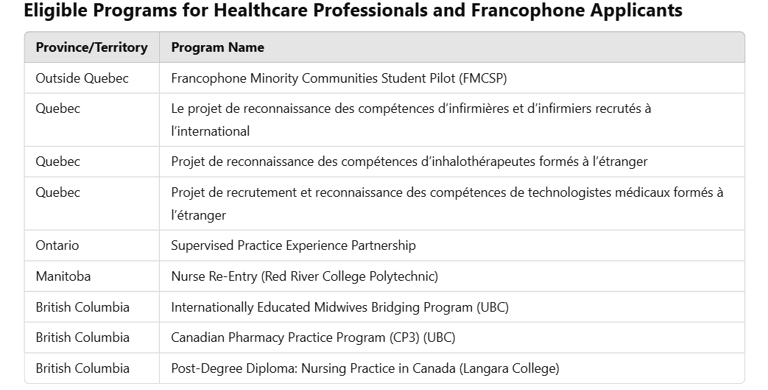Spousal Open Work Permit (SOWP) for International Students and Foreign Workers
Looking to apply for a Spousal Open Work Permit (SOWP) in Canada? Our guide covers who qualifies, how long the permit lasts, and the latest 2025 eligibility updates for international students and foreign workers. Learn about TEER occupations, study permit transitions, and family sponsorship requirements to ensure a smooth application process.
BLOGS
7/25/20253 min read


A Spousal Open Work Permit (SOWP) allows the spouse or common-law partner of an international student or foreign worker to work for any employer in Canada. This flexible permit helps families stay together while supporting their financial needs. As of January 21, 2025, eligibility requirements have been updated for family members of international students and workers.
I. SOWP for International Students
Who Can Apply?
To qualify for a SOWP as the spouse or common-law partner of an international student, the student must be enrolled in one of the following:
A master’s or doctoral degree program of 16 months or longer at a recognized institution
One of the following professional degree programs at a university:
Doctor of Dental Surgery (DDS, DMD)
Bachelor of Law or Juris Doctor (LLB, JD, BCL)
Doctor of Medicine (MD)
Doctor of Optometry (OD)
Pharmacy (PharmD, BS, BSc, BPharm)
Doctor of Veterinary Medicine (DVM)
Bachelor of Science in Nursing (BScN, BSN)
Bachelor of Nursing Science (BNSc)
Bachelor of Nursing (BN)
Bachelor of Education (BEd)
Bachelor of Engineering (BEng, BE, BASc)
A program specifically designed for Francophone and healthcare professionals
Work Permit Duration
In most cases, a SOWP will be valid for the same duration as the international student’s study permit. If the study permit is expiring and the student is transitioning to a Post-Graduation Work Permit (PGWP), the spouse or common-law partner may need to apply for a new work permit.
II. SOWP for Foreign Workers
A SOWP is available to spouses and common-law partners of foreign workers in Canada.
Who Can Apply?
To qualify, the foreign worker must:
Be employed in Canada in any high-skilled occupation (TEER 0 or 1) or a selected high-skilled occupation in TEER 2 and 3.
Hold a valid work permit or have an approved work permit, including:
Employer-specific permits
Open work permits under a non-family category
Work permits obtained through an economic class permanent residence program or pilot.
Have a work permit valid for at least 16 months beyond the date of the SOWP application.
Be living and working in Canada (or planning to do so).
Eligibility for Family Members Applying for a SOWP
To be eligible, the family member must:
Meet the general work permit requirements.
Be in a genuine relationship with the principal applicant.
Fall into one of these categories:
Spouse or common-law partner
Dependent child of the foreign worker or their spouse
Dependent child of a dependent child (grandchild)
Status Requirements for Family Members in Canada
Family members applying for a SOWP while in Canada must:
Have valid temporary resident status
Have maintained status
Be eligible for restoration of status (visitor, worker, or student)
III. Documents to Prove You Meet the Requirements
1. Spouses of International Students
Proof of relationship to the principal applicant:
Marriage certificate
Statutory Declaration of Common-Law Union (IMM 5409)
Proof the principal applicant is enrolled in an eligible program:
Enrollment letter from the institution confirming a master’s program (16 months or longer), doctoral program, or select professional program
Proof the principal applicant is authorized to study in Canada:
Copy of the study permit with expiry date
Letter of introduction (port of entry letter)
Visitor record or passport stamps showing authorized study period
2. Spouses of Foreign Workers
Proof of relationship to the principal applicant:
Marriage certificate
Statutory Declaration of Common-Law Union (IMM 5409)
Proof the principal applicant is legally authorized to work in Canada:
Copy of the work permit with expiry date
Letter of introduction (port of entry letter)
Visitor record showing authorization to work without a permit
Passport stamps showing the period of authorized work (if work permit-exempt)
Note: This proof isn’t required if the spouse applies at the same time as a Post-Graduation Work Permit (PGWP) holder or employer-specific work permit holder.
Proof the principal applicant has at least 16 months remaining on their work permit:
Copy of the work permit with expiry date
Letter of introduction
Visitor record or passport stamps showing authorized work period
Note: Spouses of PGWP holders applying simultaneously don’t need to provide this proof.
Proof the principal applicant works in a TEER 0, 1, or select TEER 2 or 3 occupation:
Employer letter detailing employment, occupation, duties, and NOC/TEER category
Copy of the letter of offer of employment
3. Spouses of Workers Covered by Free-Trade Agreements or Transitioning to Permanent Residence
These spouses are exempt from the new eligibility restrictions.
Provide proof of the principal applicant’s status:
Free-trade agreement work permit or letter of introduction
Acknowledgement of receipt letter or first-stage approval for permanent residence (e.g., Express Entry).
Understanding these eligibility criteria can help international students and foreign workers navigate the process of applying for a Spousal Open Work Permit in Canada. Staying informed by contacting us about the latest updates ensures a smoother application process and a better experience for families planning their future in Canada.


Mapleaves Immigration Services
©2025 All rights reserved
Verify Authorized Representative
Only an authorized representative can provide Canadian immigration services to you for a fee. It’s law. If you use a paid representative who’s not authorized, your application may be returned or refused.


Contact: info@mapleavesimm.com
